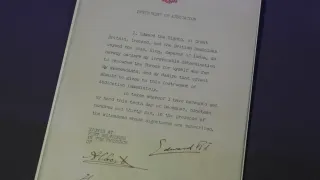August 15, 2020
'Clueless' Getting a TV Reboot Focusing on Bisexual Character
READ TIME: 1 MIN.
Great news for fans of the 90s comedy "Clueless!"
Deadline reports the film is getting the TV reboot treatment and is in development at Peacock, the new NBC streaming service.
"The project, which hails from writers Jordan Reddout and Gus Hickey ('Will & Grace') and CBS TV Studios, has been in development since last October, but no network or streaming service was attached," the outlet writes, adding that the new version will focus on the character Dionne, originally played by Stacey Dash in the 1995 movie.
"Written by Reddout and Hickey, the new 'Clueless' is described as a baby pink and bisexual blue-tinted, tiny sunglasses-wearing, oat milk latte and Adderall-fueled look at what happens when the high school queen bee Cher disappears and her lifelong No. 2 Dionne steps into Cher's vacant Air Jordans," Deadline writes. "How does Dionne deal with the pressures of being the new most popular girl in school, while also unraveling the mystery of what happened to her best friend?"
This isn't the first time "Clueless" has been made into a TV show. A year after the film was release director Amy Heckerling created the series for ABC starring Rachel Blanchard, Stacey Dash, Donald Faison, Elsia Donovan and more.
Revisit the "Clueless" trailer below.






